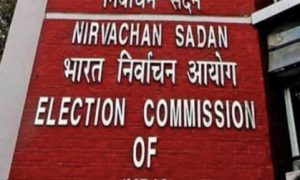In a fresh set of guidelines on testing of COVID-19 samples, the top government body said contacts of COVID patients do not need to be tested unless identified as high-risk based on age or co-morbidities.
Amid a surge in COVID-19 cases and increased detection of its new and highly contagious Omicron variant, the Indian Council of Medical Research (ICMR) on Monday issued fresh guidelines on who needs to get tested and who doesn’t.
In a fresh set of guidelines on testing of COVID-19 samples, the top government body said contacts of COVID patients do not need to be tested unless identified as high-risk based on age or co-morbidities. It also said that at-risk contacts of patients would be those above 60 years of age and individuals with co-morbidities like diabetes, hypertension, chronic lung or kidney disease, malignancy and obesity.
Read More:- Covid-19 surge: Work from Home mandate for all private offices in Delhi
The ICMR Advisory on Purposive Testing Strategy for COVID-19 said tests may be undertaken as per discretion of the treating doctor with certain considerations.
Here are the ICMR guidelines on testing:
People who need to be tested:
In community settings:
– Symptomatic (cough, fever, sore throat, loss of taste and/or smell, breathlessness and/or other respiratory symptoms) individuals.
– At-risk contacts of laboratory confirmed cases. (At-risk contacts are elderly (above 60 years of age) and individuals with co-morbidity such as diabetes, hypertension, chronic lung or kidney disease, malignancy, obesity, etc.)
– Individuals undertaking international travel (as per country-specific requirements).
– International travellers arriving at Indian airports/seaports/ports of entries as per laid down guidelines.
In hospital settings:
Testing may be undertaken as per discretion of the treating doctor with the following considerations:
– No emergency procedure (including surgeries and deliveries) should be delayed for lack of a test.
– Patients should not be referred to other facilities for lack of a testing facility. All arrangements should be made to collect and transfer samples to testing facilities, mapped to the health facility.
Read More;- Noida becomes India’s cleanest medium city with 5 star rating in being garbage-free
– Asymptomatic patients undergoing surgical/ non-surgical invasive procedures including pregnant women in/near labour who are hospitalised for delivery should not be tested unless warranted or symptoms develop.
People who need not be tested:
– Asymptomatic individuals in community settings
– Contacts of confirmed cases of COVID-19 unless identified as high risk based on age or comorbidities
– Patients who stand discharged as per home isolation guidelines
– Patients being discharged from a COVID-19 facility as per revised discharge policy
– Individuals undertaking inter-state domestic travel
ICMR also stated that testing can be undertaken either through RT-PCR, True Nat, CBNAAT, CRISPR, RT-LAMP, Rapid Molecular Testing Systems or through Rapid Antigen Test (RAT). Home or Self Test/RAT and Molecular Test is to be considered confirmatory, without any repeat testing. Symptomatic individuals, testing negative on home/self-test or RAT should undertake RT-PCR test, as per the new guidelines of ICMR.
Read More:- Honor unveils its 1st foldable smartphone Magic V
India reported 1,79,723 new COVID-19 cases in the last 24 hours, taking the daily positivity rate in the country to 13.29 per cent, according to the Ministry of Health and Family Welfare on Monday.
A total of 4,033 cases of the Omicron variant of coronavirus have been reported so far. Maharashtra has reported the highest number of cases (1,216), followed by Rajasthan (529) and Delhi (513).
About 1,552 patients infected with the new variant have recovered. The ministry further informed that the active caseload in the country currently stands at 7,23,619 which accounts for 2.03 per cent of the country’s total number of cases.



































